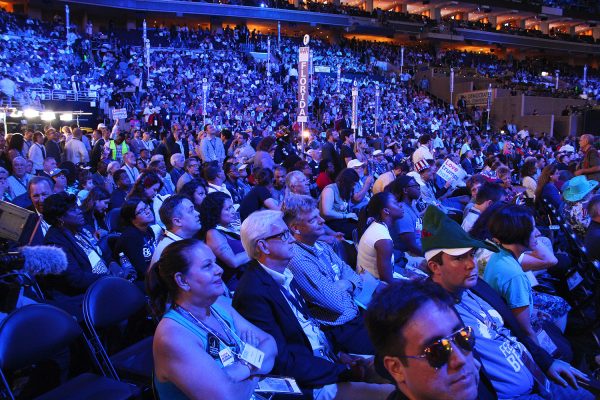
“The party decides” theory — which argues that American party elites exert a strong behind-the-scenes influence on who gets nominated for political office — took a blow in 2016, when Donald Trump won the Republican presidential contest despite strong internal opposition.
One exception doesn’t discredit the whole theory, theory. Seth Masket argues at Mischiefs of Faction that this year’s nominating contests show activists and party leaders are still actively shaping the choices voters will get.
Activist-driven
In California, state Democrats have declined to endorse Dianne Feinstein for another six-year Senate term.
In Utah, conservative activists tried to rewrite the nominating rules to prevent Mitt Romney from running for Orrin Hatch’s Senate seat.
In both cases, an older, “establishment” candidate has lost favor with the activist base.
But in neither case is the party’s control at risk, which explains why party leaders have taken a backseat to this drama.
Because Republicans have been all but wiped out in California, political competition in the state takes place within the Democratic Party rather than between parties.
Utah is so Republican that Romney could run on his Massachusetts health plan and still win.
Leadership-driven
Democratic Party leaders have been less reluctant to throw their weight around in places Trump won in 2016, but where they believe Democrats stand a chance.
In Pennsylvania’s 18th congressional district, which holds a special election this month, the party backs a former Marine and prosecutor, Conor Lamb.
In Texas’ 7th congressional district, the Democratic Congressional Campaign Committee has sided against Laura Moser, a left-wing activist it considers unelectable.
NBC News reports that Democrats understand they need to run candidates who project stability in swing districts:
Think of Ralph Northam (military background, doctor, lieutenant governor), who won Virginia’s gubernatorial contest last November. Or think of Doug Jones (a former prosecutor who promised he could “work with Republicans better than Roy Moore can work with anyone”) in December’s Alabama contest.
Whether activist- or leadership-driven, Masket argues these examples are all signs of an active party system that isn’t sitting back and letting voters nominate anyone they want.
